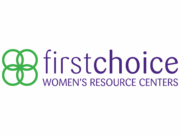Minneapolis, MN — Minnesota’s invasive lobbying disclosure laws practically hand-deliver an “enemies list” to activists looking to harass or threaten groups and their vendors.
Now, two Minnesota advocacy organizations are fighting back, saying the state’s disclosure laws violate their First Amendment rights and make political violence easier.
Minnesota Right to Life and Minnesota Gun Rights are challenging the state’s sweeping disclosure requirements that force grassroots groups to publicly reveal private vendor information whenever they spend more than $2,000 on advertising that encourages people to contact their elected officials.
The groups, represented by attorneys from the Institute for Free Speech and local counsel Lee U. McGrath, have filed a federal lawsuit in the U.S. District Court for the District of Minnesota challenging the state’s lobbying disclosure laws that chill protected speech and expose advocacy organizations and their business partners to harassment intended to drive such groups out of the public square.
Under Minnesota’s broad definition of “lobbying,” advocacy groups must register with the government and publicly disclose detailed information about their grassroots activities—including the names and addresses of vendors—whenever they communicate with supporters to encourage them to contact legislators about pending bills. This requirement applies even when organizations never speak directly to public officials themselves and instead merely urge private citizens to make their voices heard.
Disclosure rules like these can inflict devastating harm. Minnesota Right to Life (MNRTL) experienced targeted harassment in 2020 when activists discovered the identity of the group’s mailbox vendor and launched a pressure campaign that forced the vendor to cancel MNRTL’s service without warning. The organization lost thousands of dollars and valuable donor information as a result. Both MNRTL and Minnesota Gun Rights have since been “deplatformed” by multiple vendors providing services like fundraising management and email distribution.
The risks of such disclosure have become starkly apparent following the recent assassination of state representative Melissa Hortman and the attempted murder of state senator John Hoffman at their homes. The gunman, who had a list of 70 targets, exploited publicly available information to locate his victims. As other states move to protect personal information and increase security measures, Minnesota’s disclosure laws continue to provide a roadmap for those seeking to intimidate and silence advocacy groups through harassment of their business partners.
The lawsuit argues that Minnesota’s vendor disclosure requirements violate the First Amendment because they lack any substantial government interest while significantly burdening protected speech. Unlike traditional lobbying regulations aimed at preventing corruption between lobbyists and public officials, these rules target grassroots advocacy among private citizens—an area where anti-corruption concerns don’t apply.
“We’re not talking to politicians—we’re talking to our friends and neighbors,” explained Ben Dorr, Executive Director of Minnesota Gun Rights and Minnesota Right to Life. “But Minnesota treats a text message asking supporters to call their legislator the same as a corporate lobbyist meeting with an elected official, complete with public disclosure requirements that put our vendors at risk.”
“Minnesota’s disclosure laws deliver targets to activists on a proverbial silver platter—and that’s the point,” explained Institute for Free Speech Senior Attorney Brett Nolan. “In an era of increasing political violence and doxxing, these rules serve no legitimate government interest. They exist solely to make expressing certain opinions more difficult and more expensive, shutting down political speech and driving groups with disfavored viewpoints out of the public square.”
The state’s rules are also selectively applied. While advocacy organizations face criminal penalties for incomplete disclosure, news media organizations receive a broad exemption that allows them to urge political action without any reporting requirements—even when they explicitly call for listeners to contact legislators about specific bills.
The chilling effect is immediate and severe. Both of Dorr’s organizations now avoid effective but expensive advertising campaigns to stay below the $2,000 disclosure threshold, limiting the groups’ ability to engage in protected speech. Under current Minnesota law, these groups face an impossible choice: restrict their advocacy, expose their vendors to harassment, or risk criminal prosecution for incomplete reporting.
“Citizens shouldn’t have to choose between speaking out on issues they care about and protecting their business partners from retaliation,” added Nolan. “The First Amendment protects grassroots advocacy, especially when that speech addresses topics of public concern.”
The lawsuit comes as privacy advocates nationwide warn about the dangers of forced disclosure in an increasingly volatile political climate. The recent Minnesota assassination have demonstrated the deadly consequences of making personal information readily available. This makes Minnesota’s vendor disclosure requirements particularly irresponsible, as they unnecessarily expose private citizens to similar risks simply for doing business with advocacy groups.
The lawsuit seeks to enjoin enforcement of Minnesota’s vendor disclosure requirements and grassroots lobbying registration rules. The organizations are also requesting emergency injunctive relief to prevent further enforcement while the case proceeds.
To read the complaint in Minnesota Right to Life and Minnesota Gun Rights v. Rashid, et al., click here. To visit our case page, click here.
About the Institute for Free Speech
The Institute for Free Speech promotes and defends the political speech rights to freely speak, assemble, publish, and petition the government guaranteed by the First Amendment.














